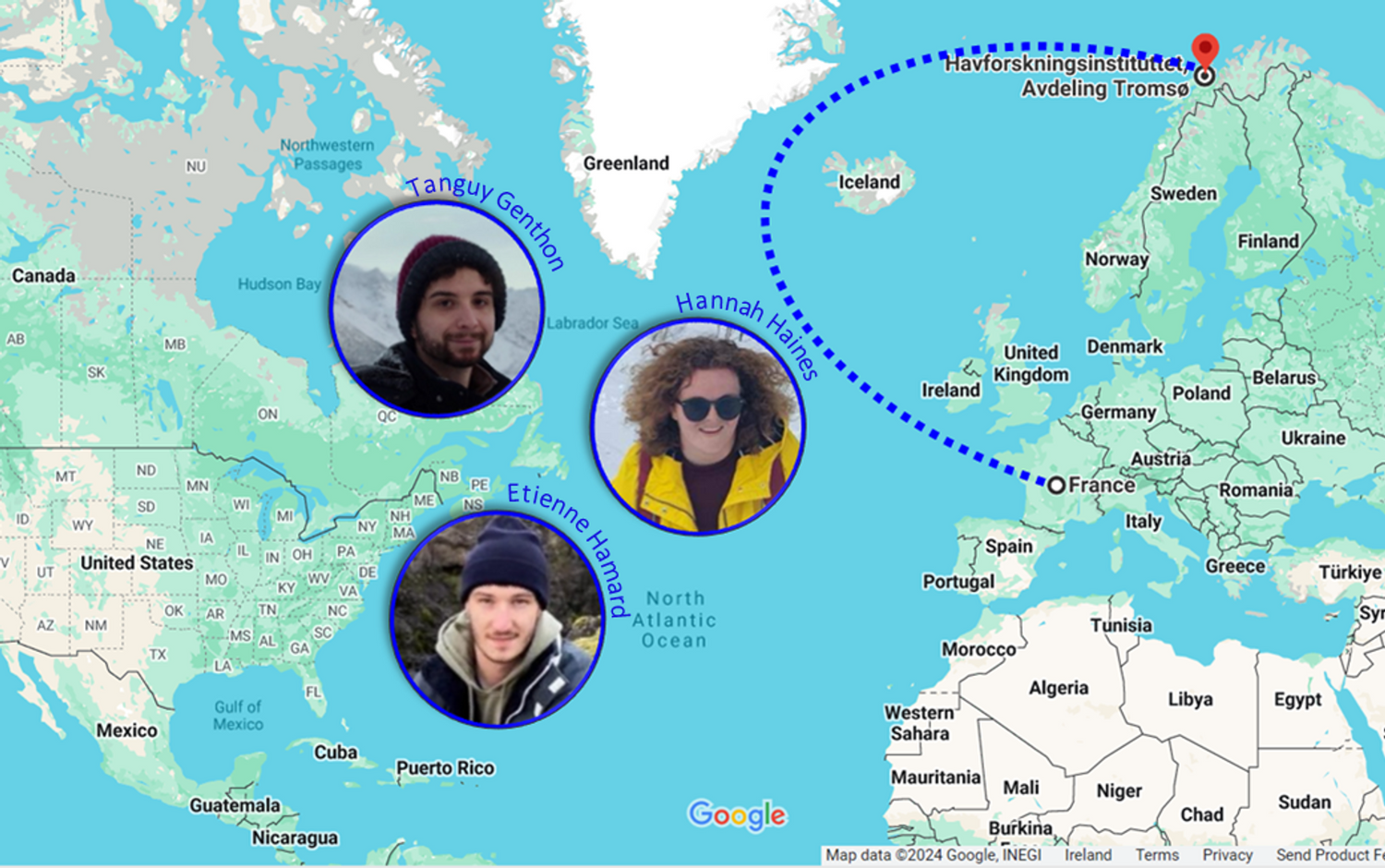Hannah Haines, Etienne Hamard and Tanguy Genthon have been conducting their Masterprojects at the IMR in Tromsø. Their projects are directly connected to MISSION ATLANTIC work on assessing tipping points (WP5) and on quantitative risk assessment (WP7).
Etienne started in January 2024. He comes from the University of Toulouse in France, and is studying the impact of multiple stressorson ecosystem state (pelagic fish biomass) and services (catches, revenues). He’s looking at how climate, fishing, policy and economy (fish prices) can control biomass and catches. His work involves the development Bayesian Belief Networks (BBNs) and Structural Causal Models (SCMs).
Tanguy started in January 2024. He comes from the University of Western Brittany in Brest, France. He is working on the implementation of the whole-ecosystem model StrathE2E for the Norwegian Sea case study. With StrathE2E, he will explore the combined effect of fishing and climate on the Norwegian sea ecosystem under specific climate and fishing scenarios.
Hannah completed her master project in June 2023. She comes from the University of Toulouse and has now moved on to a PhD project in Bremerhaven, Germany. Hannah’s work in MISSION ATLANTIC has focused on assessing methods used to identify ecological regime shifts. She tested diverse methods to evaluate their specificity, i.e. how often these methods rightly or wrongly detect regime shifts. She found that most methods used today have very poor specificity, which implies that these methods tend to detect regime shifts when these don’t exist. Her work is of high relevance for MISSION ATLANTIC and calls for careful evaluation of current and past studies that report ecological regime shifts across world oceans.

MISSION ATLANTIC Master Students at the IMR in Tromsø (from left to right): Hannah Haines, Tanguy Genthon, Etienne Hamard
